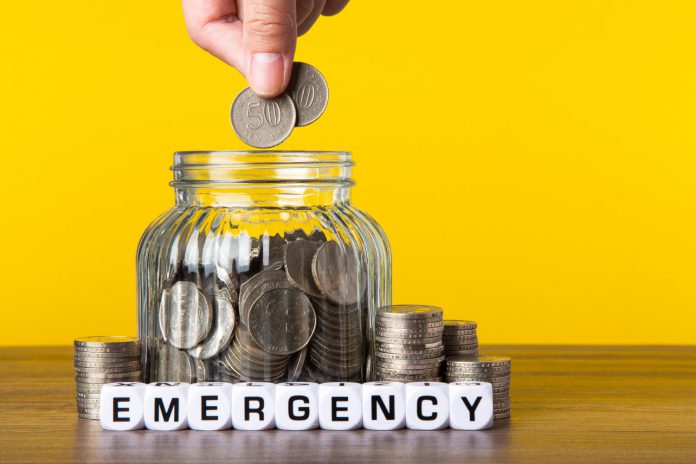In today’s unpredictable financial landscape, the concept of an emergency fund has gained prominence as a vital tool for financial stability and debt prevention. An emergency fund serves as a financial buffer, designed to cover unexpected expenses and financial emergencies without resorting to debt.
The Importance of Emergency Funds
Emergency funds are a cornerstone of sound financial planning. They provide a safety net that can prevent individuals from falling into the debt trap when unexpected expenses arise. These expenses can range from medical emergencies and car repairs to sudden job loss or urgent home maintenance. Without an emergency fund, such unforeseen costs often force individuals to rely on high-interest credit cards, payday loans, or other forms of debt, which can lead to a cycle of borrowing and increasing debt burdens.
- Financial Stability: Emergency funds enhance financial stability by offering a readily accessible source of funds. This reduces the need to liquidate investments or assets at potentially inopportune times, preserving long-term financial plans and investments.
- Stress Reduction: Knowing that there is a financial cushion in place can significantly reduce stress and anxiety. Financial stress is a major contributor to mental health issues, and an emergency fund can provide peace of mind, knowing that emergencies won’t derail financial stability.
- Avoiding High-Cost Debt: By having an emergency fund, individuals can avoid resorting to high-cost debt options, such as credit cards with high-interest rates or payday loans with exorbitant fees. This avoidance is crucial in maintaining financial health and preventing the debt spiral.
Building an Emergency Fund
Building an emergency fund requires discipline, planning, and consistency. Financial advisors typically recommend setting aside three to six months’ worth of living expenses, though the exact amount can vary depending on individual circumstances such as job stability, income, and dependents. Here are some strategies to effectively build an emergency fund:
- Budgeting: Start by creating a detailed budget that outlines income, essential expenses, and discretionary spending. Identify areas where you can cut back and allocate those savings to the emergency fund.
- Automatic Transfers: Set up automatic transfers from your checking account to a dedicated emergency savings account. This ensures regular contributions and reduces the temptation to skip saving.
- Windfalls and Bonuses: Use unexpected income such as tax refunds, bonuses, or monetary gifts to boost your emergency fund. This can significantly accelerate the savings process.
- Side Income: Consider generating additional income through side jobs or freelance work. Allocate a portion of this extra income directly to your emergency fund.
Maintaining an Emergency Fund
Once an emergency fund is established, maintaining it is crucial. Regular reviews and adjustments may be necessary to ensure that the fund remains adequate over time. Here are some tips for maintaining an emergency fund:
- Periodic Review: Regularly review your emergency fund balance and your living expenses. Adjust the fund size as needed to reflect changes in your financial situation, such as an increase in living costs or a change in job status.
- Replenishment: If you need to dip into your emergency fund, prioritize replenishing it as soon as possible. Treat it as a top financial goal until it is fully restored.
- Separate Account: Keep your emergency fund in a separate, easily accessible savings account. This minimizes the risk of accidentally spending it on non-emergencies.
- Low-Risk Storage: Store your emergency fund in a low-risk, high-liquidity account. While it won’t earn high returns, the primary goal is accessibility and safety, not investment growth.
Broader Implications for Financial Well-Being
The presence of an emergency fund has broader implications for overall financial well-being. It fosters a proactive financial mindset, encouraging individuals to plan ahead and consider long-term financial health rather than short-term gratification. Moreover, it sets a foundation for other financial goals, such as retirement savings, investment opportunities, and major life purchases, by ensuring that these goals are not derailed by unforeseen expenses.
In addition, emergency funds contribute to economic stability at a macro level. When individuals are financially secure, they are less likely to rely on social safety nets and more likely to contribute positively to the economy through consistent spending and investment.
Conclusion
Emergency funds are indispensable in the quest for financial stability and debt prevention. By providing a financial cushion, they help individuals manage unexpected expenses without resorting to debt, thereby safeguarding financial health. Building and maintaining an emergency fund requires commitment, but the peace of mind and financial security it offers are well worth the effort. In a world where financial uncertainties are a given, an emergency fund stands as a pillar of prudent financial management, ensuring that life’s surprises don’t become financial setbacks.




